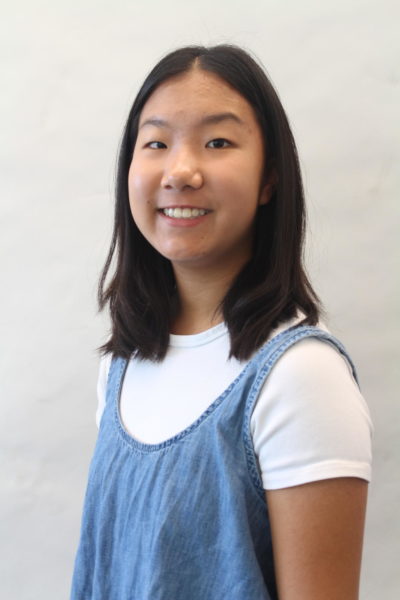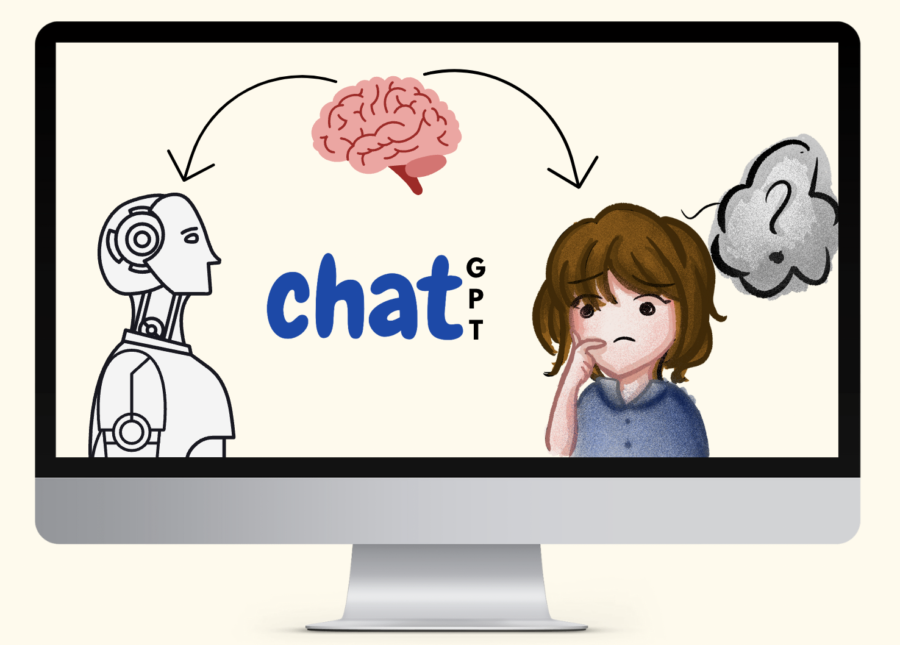ChatGPT is an AI software often used for tasks such as text generation, answering questions, summarizing topics and more. Although the platform describes itself as “a powerful language model that can be used in a variety of ways in classrooms,” Menlo teachers think its implications for education have yet to be deeply explored. Since its release on Nov. 30, 2022, teachers have had an abundance of opinions about ChatGPT and what it means to them.
History teacher Nick Merlesena is hopeful about the introduction of ChatGPT in schools. “It’s a lot of fun seeing all the different things that it can do, comparing the writing and analysis and historical accuracy of certain problems in relation to how I would respond,” Merlesena said.
On the other hand, the platform has begun to affect assignments and exams that Merlesena is giving out to students. “It had already impacted [our winter history finals],” he said. “Even though I had [students] type [their] DBQs, I had us all write the short answers by hand, and that was a direct response to the AI.” Though Merlesena didn’t expect people to use ChatGPT on their finals, he was unsure how to address it at the time and decided to monitor his students more strictly as a result.
Merlesena worries that students can become too dependent on ChatGPT and have their level of genuine work decrease as a result. “I think if students become too reliant on this tool [rather] than their own critical thinking [and] analysis, their own ability to think for themselves will go out the window,” he said. “I recognize the potential harm it can cause to not only the academic aspect of one’s identity, but also the personal and introspective abilities of each individual.”
Computer science teacher Douglas Kiang is concerned about ChatGPT’s reliability. “I actually had to come up with a test for my App Design students next week, and I used ChatGPT [to give me multiple choice questions]. They were pretty good, [but] I found one question where the answer was just wrong,” Kiang said. He noted that, even though ChatGPT had saved him some time, he still needed to manually go through and edit the questions to his own preference.
Kiang understands why some students would be driven to utilize the software. “One of the things that I’ve observed about Menlo students is that [they] are chronically overscheduled. […] Because of that, they’re driven to optimize,” he said. But, as a teacher, he knows that learning comes from hard work, and he believes teachers should rethink how they credit points to students. “[If] we [are] giving 100% of our points towards the end product, […] I think we open ourselves up to abuse of tools like ChatGPT or Google in general,” Kiang said.
English teacher Rachel Blumenthal believes that further testing of ChatGPT will help teachers determine where it fits within the classroom. “I [don’t] think we should wage a war against the thing – I think we are going to have to learn how to incorporate it into education and not treat it like this cheating tool that must not be touched,” she said. As a result, Blumenthal stated that exploring ChatGPT’s boundaries has helped her think of more complex essay prompts for her students. “I think […] the more layers of thinking and critical concepts you ask students to engage with, the harder it is for ChatGPT to spit out a serviceable essay in one go,” Blumenthal said.
Blumenthal thinks that transparency is critical to making sure both she and her students are on the same page. “I don’t love anything that puts the teacher and the student into a penal relationship, where it’s like, we’re the jailer and you’re the prisoner,” Blumenthal said. “I don’t like the idea of introducing a more exam-like atmosphere into the learning environment.” Blumenthal’s goal is to learn to embrace ChatGPT with an open mind. “My takeaway is that I’m going to try to approach ChatGPT as an opportunity rather than a threat.”
Blumenthal, along with Science Department Chair James Formato, will be co-chairing a teacher discussion group to figure out their philosophy on ChatGPT in the classroom as it relates to academic integrity at Menlo. This group, organized by Upper School Director John Schafer, met for the first time on Jan. 31 with the goal of raising consciousness and fostering discussion about what AI means for teaching and student learning.


Gabe • May 9, 2023 at 7:30 am
Chat GPT will make students worse when it comes to learning